fbq('trackCustom', 'view_shop_coffee'); var trackEvent = 'shop_coffee'; It is not a secret, a little of everything…
Decaf doesn’t deserve the bad reputation it sometimes suffers from coffee purists, whose chief complaint seems to target the processes used to neutralize the amount of caffeine in a batch of coffee. Nowadays, safe and effective decaffeination practices mean we can break free from the caffeine buzz and enjoy coffee at our own pace.

Most people drink coffee for two reasons: they like the taste, and they like the boost of energy they get from the caffeine kick in every cup. So intertwined are these reasons for buying, making and drinking coffee that it fuels the entire industry. Not only does the idea of decaf coffee seem pointless, it’s often downright degraded by a significant number of coffee-lovers.
These decaf-naysayers are just posturing, however. There’s nothing fundamentally wrong with enjoying a caffeine free coffee. In fact, caffeine free coffee is the only way some coffee aficionados can enjoy their favorite drink.
Chief among the reasons why people choose decaf are health-related conditions that can be worsened by regular caffeine intake. If you have a heart problem, for example, you may need to be extra cautious about your exposure to stimulants like caffeine.
Others have more casual reasons for their decaf preference. Many people just want to enjoy the same comfort and flavor they love from their morning cup of coffee, but at night — and without the risk of losing beauty sleep.
These days, it’s just good manners to let folks enjoy their coffee as they please. If you’ve been waiting to make a switch to decaf for some or all of your daily coffee intake, don’t let the fear of being shamed for liking a “lesser” form of coffee keep you from living your best decaf coffee life!


You’ll see a lot of coffee beans sellers describe their decaf as a roast, but it’s not quite accurate. Decaffeination has nothing to do with the roasting process, and it should not have any impact on how a batch of coffee beans roasts, either.
In the case of Lifeboost Coffee, they take their founding business philosophy — produce coffee free of mycotoxins, a microscopic form of mold they say can be found in cheap quality beans — and make a fine low caffeine coffee line. Their decaf coffee comes in a variety of roast depths and natural flavors.
Buy it because:
Most coffee brands flaunt a wide selection of regular coffee blends and roasts but toss one decaf offering out as if that’s enough. Lifeboost has a dozen or so choices, all best decaf options, with some focused on a seasonal flavor, like pumpkin spice, and others on the roast quality itself.
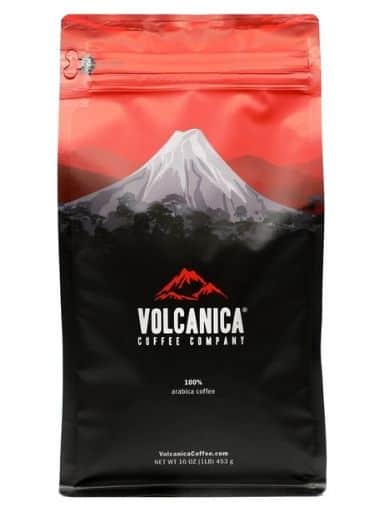
When creating Volcanica's House Blend Decaf Coffee, the company searched for the best decaf coffee beans from South and Central America. Smallholder coffee farms grow the coffee in rich volcanic soil. The brew is sweet and bold with a full body. The company fresh roasts small batches to order. That gives you the best decaf freshest beans possible.
Volcanica is known for its high-quality gourmet coffees. This family-run business believes in treating the farmers fairly. The people at Volcanica make frequent trips to the farms to build these relationships. They pay attention to each step from crop to cup.
The beans undergo the Swiss Water Process to give you chemical-free decaf coffee. The 99.9% caffeine-free beverage retains the original flavor of the beans. It's then medium roasted. You can buy this coffee in several sizes and different grinds, including decaf espresso. This product is kosher certified.
Buy it because:
Volcanica offers a wide array of decaf coffees. This house decaf blend is all about balance while delivering a complex experience. It also balances a great price with a high-end coffee.
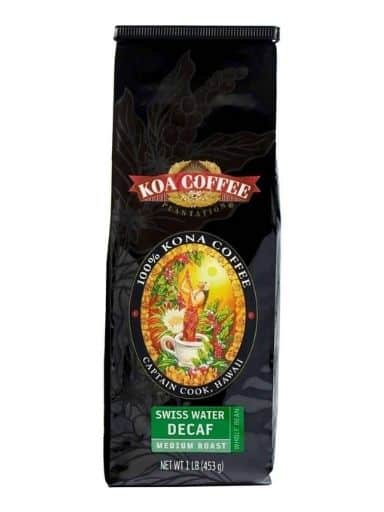
Koa Coffee corners the market for Hawaiian-grown whole bean coffee. Since there’s only so much available space across all the islands for coffee estates, these beans tend to be pretty pricey no matter who roasts them or how boutique they are.
They only offer one decaf coffee, and that’s a medium roast. No complaints here, however, since a medium roast is the perfect balance for coffee beans that come from this region. Just enough roast to get that proper caramel flavor going without burning off all the organic compounds that give coffee its fruitier taste.
Buy it because:
It’s easy to impress guests with Hawaiian-grown coffee beans, and the Koa brand is nearly synonymous with that. If you’re usually in the market for something cheaper, then keep this in mind for special occasions that need a high-quality best decaf coffee option.
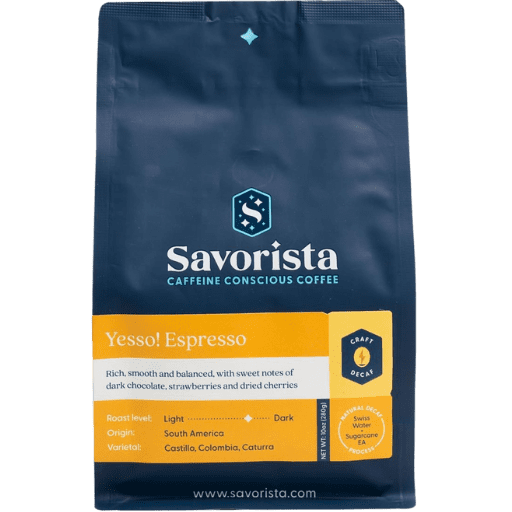
Savorista Coffee was founded with the sole purpose of providing exceptional and one of the best decaf coffee beans. This goal stemmed from the founder's desire to slow down and enjoy life more. You can choose from single-origin coffees or blends. We tried and loved the Yesso! Espresso blend. When brewed in a French press, the chocolate and strawberry notes stood out. As an espresso, it was rich and smooth without any bitterness.
Savorista's beans are primarily sourced from South America and Africa. You can choose a coffee in a range of roast levels. Several of their coffees are also available as half-caf. A unique feature of Savorista is its subscription programs. You can subscribe and save to a single coffee on repeat, or you can have a shuffle subscription that rotates between decaf or half-caf coffees.
Buy it because:
Savorista Coffee is not a Jack-of-all-trades. The focus is to create truly enjoyable decaf and half-caf coffee. Plus, you can save with their subscription programs.
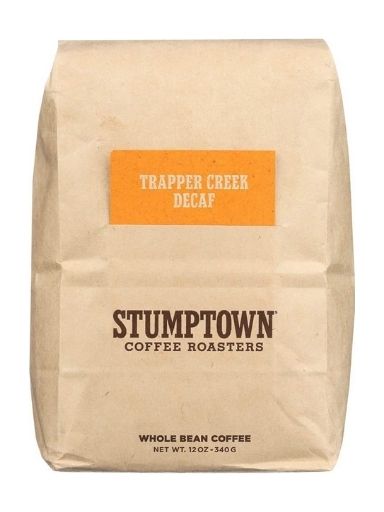
If you want organic decaf coffee, you’ll need to shop for brands that use what’s called the Swiss Water Decaf method, which doesn’t use any solvents. This is the only decaffeination method that’s certifiable as organic, even if other organic methods do exist.
Which is one reason why Stumptown uses it to craft their Trapper Creek blend. Theirs is a brand known for focusing on the unique flavor profile of each of their offerings, so a decaffeination process that doesn’t impact the integrity of the coffee’s flavor is essential.
Stumptown has one of the best decaf coffee beans on the market.
Buy it because:
You can grind this fine enough to use as espresso or keep it to a medium grind size for regular drip-brew methods. The roaster’s description of its flavor lists fruitier notes, like raisins, alongside nuttier components like butter and caramel.

This single-origin coffee comes from the Yirgacheffe region in southern Ethiopia. These arabica beans have a long tradition, originating from wild coffee trees. The beans from this area are renowned for their exceptional quality.
Flavor notes include lemon, blueberry, and blackberry. The Swiss Water Process helps the decaffeinated coffee retain its original flavor. Keeping the roast on the lighter end helps retain the exotic taste the region is known for.
The beans were wash-processed and patio dried. This coffee has a pH level of 5.1. Despite its fruitiness, it's on the lower end of the acidity spectrum. The beans are both Fairtrade and kosher certified. Like other Volcanica coffee, it's available in a range of sizes and a variety of grinds.
Buy it because:
The beans from this area are renowned for their exceptional quality. This coffee lets you experience the exotic flavor of Yirgacheffe without getting the jitters.
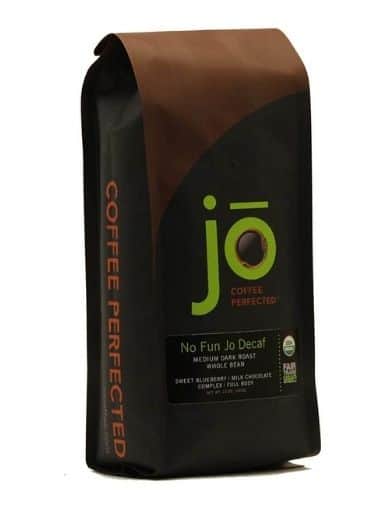
Jo Coffee means business when it comes to their decaf selection. They already stand by their promise to choose the best of the best raw Arabica beans for each blend, but they also snag all the certifications they can manage.
So when Jo Coffee tells its customers that they use the Swiss Water decaf process, they back it up with a certification from the Swiss Water officials themselves. If you don’t see a trademarked logo in use from roasters who boast about their Swiss Water decaf, then you have good reason to question the coffee’s authenticity.
Buy it because:
Any time you see the word blueberry used to describe the flavor of a coffee, you can expect it to have a very mellow fruited flavor. This isn’t going to give your tongue the same zap of a lime-like hint, which is a complement to the milky chocolate body to this coffee.
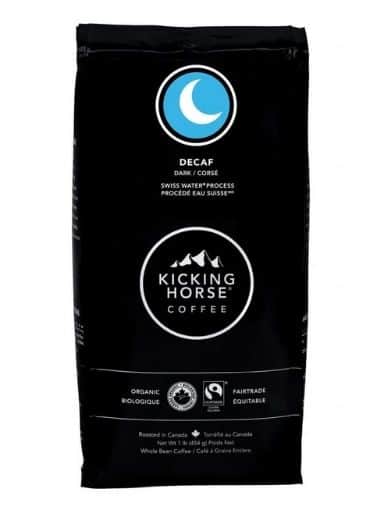
The decaf you’ll find offered from Kicking Horse taste like it still has all the kick of regular coffee, and it’ll leave you thinking “Is decaf coffee really decaf if it tastes so much like the real thing?
But that’s the Swiss Water decaf process for you. Like its competitors, it’s clear Kicking Horse knows the all-organic decaffeination process is best way to preserve a coffee bean’s unique flavor characteristics.
Buy it because:
This is the brand of decaf to try if you’re looking for that perfect espresso bean replacement. You can get dark Italian roasts in decaf versions, but it’s pretty old-fashioned to use just Italian-style roasts for espresso these days.
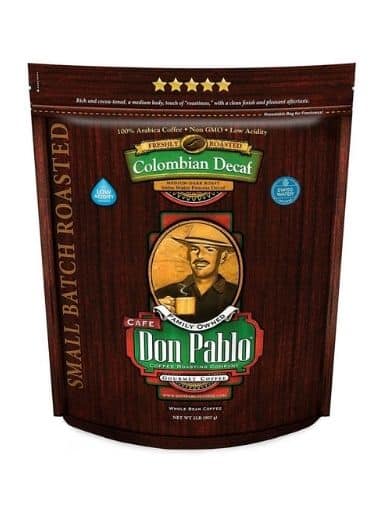
Colombian-grown Arabica beans make up the blend for this medium-dark roasted decaf coffee. Given the region of origin and the roast veering towards the toastier side of the light-to-dark spectrum for beans, you can expect this coffee to live up to its tasting notes: warm caramel, rich cocoa, and just a bit of a citrus tingle.
It also happens to be a low-acid coffee, which is good news for anyone who needs decaf coffee and a lower risk of heartburn. As with many premium coffee brands, Don Pablo uses the certified-organic Swiss Water decaf process for the best decaf.
Buy it because:
This is a must-have for decaf drinkers who need to reduce their reflux triggers but still want the boutique coffee beans experience. This roaster maintains small-batch processes in order to keep the quality consistent and the product as fresh as possible.

We see what you’ve done here, “Fresh Roasted Coffee”. They’ve taken the advice of keeping it simple to heart when it comes to branding, but that means they have more energy to put into making quality coffee.
You’ll find their decaf on par with Intelligentsia and Stumptown. This has that nuttier, more chocolate-flavored taste many coffee drinkers are seeking from a perfect cup they can drink at any hour of the day.
Buy it because:
With their focus on a reduced carbon footprint, you can bet this brand is doing everything they can to live up to their Fresh Roasted Coffee name. It’s also one of the few decaf options on our list that claims to use single-origin beans.

This brand’s decaf offerings span a wide variety of regional blends and complementary roasts. The Costa Rican decaf stands out among the rest for having such a crisp, fresh flavor that finishes with a satisfying
This brightness doesn’t wind up twangy like a lemon type of fruitiness, but more like the zing you get when you bite into a fresh, cool apple. It’s undeniably fruity for a decaf, but it doesn’t overpower those more familiar chocolate notes.
Buy it because:
Costa Rican coffees are prized for their medium body and balanced acidity, so you can anticipate a coffee like this one from Volcanica to be a likely candidate for best tasting decaf coffee.
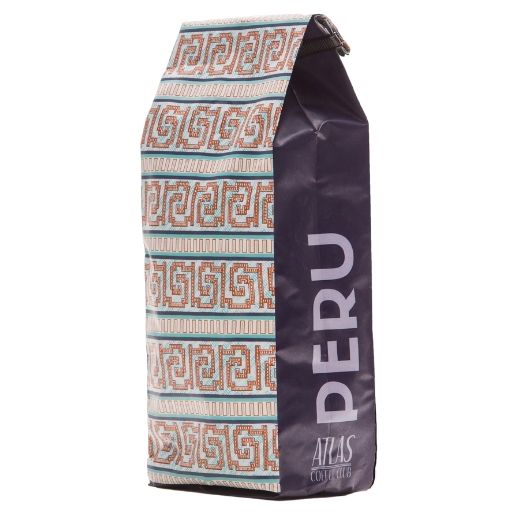
If you love trying coffees from around the world, you should check out the Atlas Decaf Coffee Club. They have a decaf option to deliver freshly roasted decaf coffee to your door each month. They use a water process to decaffeinate, so it won't have harmful chemicals and it will retain the rich flavors you love.
Each season, Atlas Coffee Club selects a micro-lot coffee to offer its subscribers. Think of Atlas as a coffee curator, selecting the best coffee for you to try. Atlas offers flexible plans regarding how much and how often you want coffee delivered. The company is committed to sustainable practices. They pay higher than the market price for the coffee to ensure the best selection.
With each delivery, you'll find a beautiful bag decorated in a motif reminiscent of the region's culture. You'll also find a postcard that has an iconic photo of the country. The postcard also had information about the region. You can give the postcard to a friend or relative and they will get 50% off their first month's subscription.
The coffee also comes with an informational card. On one side, they have information about the history of the coffee industry in that country. It also details the sub-region the coffee comes from, how it was processed, and the altitude where it grew. The other side details the tasting notes and suggests the preferred method for brewing that particular coffee. Then it shows where the roast level sits on a scale from light to dark.
For our review, they provided us a sample of their decaf Peruvian coffee in a medium roast. Like many South American coffees, it had a strong and enticing aroma. In the cup, the coffee had a rich, full body. When prepared in a pour-over brewer, the depth of flavor came with hints of nuts and honey.
Buy it because:
An Atlas coffee subscription is your passport to a whole world of coffee. Past offerings included Costa Rica, Papua New Guinea, Kenya, and Ethiopia. If you've always wanted to try exotic decaf coffees but didn't know where to start, this is the best coffee subscription for you.
Before scientists could understand how to decaffeinate coffee, they had to understand how to isolate it as a compound, first. However, nobody set out to decaffeinate coffee from the start — the experiments that led to the isolation of the caffeine compound in coffee were used to compare it to belladonna extract.
Even when decaffeination was finally achieved, it was done by pure accident — a shipment of coffee beans became soaked with ocean water. Although most of the caffeine was leached from the beans, the flavor remain unchanged! Eureka!
The earliest commercially viable decaffeination methods used solvents like benzene, which were later classified carcinogenic. Now, coffee can be decaffeinated a few different ways.
Most methods still use a solvent-based decaffeination process, though with food-grade, human-safe solvents. It can be difficult to measure the exact percentage of decaffeination, so always assume there’s still a little caffeine left in the bean no matter what process is used. It’s not uncommon for some enthusiasts to criticize the point of decaffeinating coffee, asking is decaf coffee really decaf if some remains?

Unless you’re cracking open an antique can of old fashioned decaf coffee, you’re not likely to run into any safety issues with regards to carcinogenic solvents. Still, some people like to avoid foods that undergo extra process steps like decaffeination.
As you just saw in the last section, you’re better off assuming all decaffeinated coffee still has some caffeine leftover, no matter what. If your doctor tells you that you must give up all caffeine, every last drop, then your typical bag of decaf from the store will probably need to stay there.
For matters of taste, it’s all subjective, right? Well, it was pretty universally agreed upon that for its earliest inceptions, the flavor of decaffeinated coffee was demonstrably subpar to “regular” coffee. This is despite all claims that the decaffeination process did not alter the flavor of the coffee.
It may have been a trick of the mind, however, considering how intertwined the love of coffee’s jolt is with its flavor. Modern decaf brands manage to balance safe, effective decaffeination processes with maintaining the flavor profiles enthusiasts love the most.
So, How to Choose Decaffeinated Coffee?
If you’re trying to find the best decaf coffee, you might be surprised by the sheer variety. Specialty coffee roasters realized that not every java lover wants to be wired. Now you can find single-origin and blends from every corner of the globe.
So how do you decide which bag to try? Here we’ll lay out a few things to think about when you’re buying your next bag of decaf beans.
Coffee beans contain over 1,000 different chemical compounds. These compounds create the complexities of coffee’s flavor and aroma.
It’s pretty much impossible to extract only a single chemical. Researchers developed methods to better target the caffeine molecule while leaving flavor compounds intact. But a decaffeinated coffee bean will have different characteristics than an untreated bean.
The decaffeination process takes place before the coffee is roasted. It’s not simple or easy. The green beans go to specialty companies to extract the caffeine.
The three methods to decaffeinate coffee are solvent-based, Swiss Water Process, and carbon dioxide. The newest of these methods is carbon dioxide. This method needs around 1,000 psi to extract the caffeine. It’s an expensive process to undertake. It’s mainly used for large-scale commercial coffees.
The first method people developed to decaffeinate coffee used solvents. Some of these solvents were carcinogenic. Companies don’t use those harmful chemicals anymore. Today’s chemical decaffeination process is safe. They use solvents either directly or indirectly. When used indirectly, virtually no solvent remains in the coffee bean.
The most common process for decaffeinating specialty coffee is the Swiss Water Process. It uses a series of water baths to extract the caffeine. It’s a lengthy process. The final product has almost all of the original compounds.
Here’s the deal. If you want a decaf that tastes like its fully-charged counterpart, then you’re best to stick with darker roasts. Dark roasts are great for many brewing methods, including decaf espresso
A lighter roast gets much of its flavor from the original bean. The decaffeinated beans won’t have the exact same chemical makeup as the original bean. As a result, they will have a slightly different taste. Not necessarily bad. Just different.
Much of the flavor from a darker roast develops during the roasting process. Therefore, the resulting brew will taste nearly identical to its potent counterpart.
But getting the perfect caramelization isn’t easy. When it comes to roasting, not all beans are created equal. Add to that, decaffeinated beans react differently during the roasting process than regular beans. You have to have a skilled artisan to get perfectly roasted decaf coffee.
The bottom line is, when buying decaf coffee, go with a company that knows their stuff when it comes to roasting beans.
In general, you’ll find decaf as a blend. There’s nowhere to hide in a single-origin coffee. A single origin is more likely to highlight the differences between caffeinated and decaffeinated beans. With a blend, the roaster carefully selects the beans to create a pleasing flavor profile that matches a caffeinated blend.
But you will find single-origin decafs. Most likely, these are darker roasts. So, if you must have, say, a Sumatra coffee, a dark roast decaf should be a very enjoyable beverage.

One thing to know about decaf coffee is that it retains all the health benefits of regular coffee. These benefits include increased longevity and a lower risk of cancer or other chronic illnesses.
Caffeine is a naturally occurring chemical in coffee. It’s in lots of other food and drinks, such as tea and chocolate. In moderation, caffeine has a number of health benefits. But in excess, caffeine can have harmful side effects. These include anxiety, insomnia, diarrhea, excess sweating, racing heartbeat, and muscle tremors. In our stressful world, it’s no wonder more and more Americans are turning to decaf.
According to the FDA, healthy adults can have up to 400mg of caffeine a day. That’s about four or five cups.
A typical cup of decaf has between 2 and 15mg. Even if you drink a pot of coffee a day, you’ll be well within these guidelines. But remember that many people are more sensitive than that. Be sure to pay attention to your body (and your doctor) when considering how much caffeine is too much.
If you get an upset stomach after drinking coffee, you may blame the oils or acidity. That may be the case. But the truth is, caffeine itself can cause tummy trouble. Studies revealed that decaffeinated coffee can significantly reduce reflux when compared to fully leaded coffee. If you’re a coffee drinker who has trouble with heartburn or acid reflux, you may want to try decaf.
While not really a health benefit, many people prefer decaf because it is less bitter. Pure caffeine is a white powder that is very bitter. You might be wary of trying new coffees because you don’t like the bitterness. If that’s you, experimenting with different varieties of decaf may open a whole new world.
From this list, you can see we have a few clear favorites and some others we include as honorable mentions. Your reasons for choosing a particular brand of low caffeine coffee may center on the flavor descriptions, or they may hinge on the origin of the beans in the blend.
In our opinion, the best decaf is Lifeboost. Their whole focus is on creating healthy coffee. If you’re drinking decaf for health reasons, it makes sense to go with Lifeboost. In all aspects of coffee production, from bean to beverage, Lifeboost never uses chemicals to adulterate the coffee. Another advantage is its sheer number of decaf coffees. You’ll also find a range of flavored decafs that you can choose as the seasons change.
Runner Up is Volcanica House Blend Decaf Coffee. They are a trusted roaster you can rely on. Their decaf House Blend was crafted to give you a satisfying cup you can enjoy any time, day or night.
Another solid choice is Stumptown’s Trapper Creek organic decaf coffee. It’s a trusted brand that pushes the envelope when it comes to setting standards in the coffee industry. It’s no surprise Stumptown puts out a quality decaf option. The company maintains the integrity of its high-quality raw coffee beans by only treating them to the all-organic Swiss Water decaffeination process.
In the end, if you’re looking at decaf, you might be pleasantly surprised by what you find. This list has plenty of options if you want to reduce your overall caffeine intake. Even if you still need that boost in the morning, you still might want to pick up a bag of decaf. It lets you enjoy your favorite beverage even late in the evening and still get a good night’s sleep.
Note for UK coffee lovers: Looking for Best Decaf Coffee Brands in the UK? Here is a good selection of UK Decaf Coffees.
We’re confident our list of the best tasting decaf coffee brands has your next favorite on there, just waiting for you to discover it!
